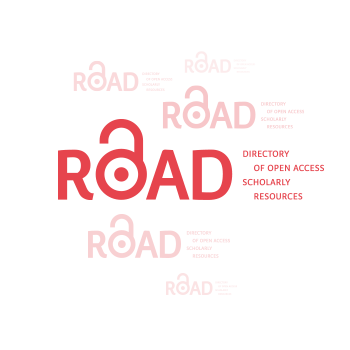الصمود الأكاديمي والتدفق النفسي لدى طلاب الجامعة: دراسة أثر تفاعل النوع والإقامة
DOI:
https://doi.org/10.59994/pau.2025.1.1الكلمات المفتاحية:
الصمود الأكاديمي، التدفق النفسي، النوع، الإقامة، طلاب الجامعةالملخص
هدفت الدراسة إلى الكشف عن العلاقة بين الصمود الأكاديمي والتدفق النفسي لدى طلاب الجامعة، وفحص القدرة التنبؤية للصمود الأكاديمي بالتدفق النفسي، وتحليل أثر تفاعل النوع والإقامة على كلا المتغيرين، وتكونت عينة البحث من (879) طالباً وطالبة (24.1% إناث) من جامعة الأزهر، تم بناء مقياس الصمود الأكاديمي وتعريب مقياس التدفق النفسي، وأظهرت النتائج وجود علاقة ارتباطية دالة إحصائيا (r = 0.424)، بين الصمود الأكاديمي والتدفق النفسي، كما أظهرت النتائج إمكانية التنبؤ بالتدفق النفسي من خلال الأبعاد الفرعية للصمود الأكاديمي والدرجة الكلية عدا بعد التنظيم الانفعالي الأكاديمي، وأظهرت النتائج تفوق الإناث في التنظيم الانفعالي الأكاديمي، بينما تفوق الذكور في جميع أبعاد التدفق النفسي. كما أظهرت النتائج وجود أثر تفاعل دال إحصائياً للنوع والإقامة على بُعد المكافأة الداخلية في التدفق النفسي. تؤكد النتائج أهمية تنمية الصمود الأكاديمي لتحسين خبرات التدفق النفسي، مع مراعاة الفروق المرتبطة بالنوع والإقامة عند تصميم التدخلات التربوية. تُقدّم الدراسة رؤى جديدة حول التأثيرات التفاعلية للنوع والإقامة على الصمود الأكاديمي والتدفق النفسي، مما يسهم في تطوير تدخلات تربوية مخصصة تراعي الفروق الديموغرافية.
التنزيلات
المراجع
Aboodi, A. (2018). Psychological flow and its relationship with some variables among university learners. Alustath Journal for Human and Social Sciences, 225(3), 123-148. https://doi.org/10.36473/ujhss.v225i3.205.
Abukari, Z., & Laser, J. A. (2013). Gender differences in academic outcomes among Ghanaian youth: The role of protective and risk factors. Journal of Community Psychology, 41(1), 117-138.
https://doi.org/10.1002/JCOP.21518
Adil, A., Ameer, S., & Ghayas, S. (2019). Impact of academic psychological capital on academic achievement among university undergraduates: Roles of flow and self‐handicapping behavior. PsyCh Journal, 9(1), 56-66. https://doi.org/10.1002/pchj.318
Adil, A., Ameer, S., & Ghayas, S. (2020). Mediating role of flow and study engagement between academic psychological capital and perceived academic stress among university students. Pakistan Journal of Social and Clinical Psychology, 17(2), 12-18.
Allen, C., Angeler, D., Chaffin, B., Twidwell, D., & Garmestani, A. (2019). Resilience reconciled. Nature Sustainability, 2, 898-900. https://doi.org/10.1038/s41893-019-0401-4.
Almulla, M. O. (2024). Academic resilience and its relationships with academic achievement among students of King Faisal University in Saudi Arabia. Revista de Gestão Social e Ambiental, 18(9), e07391-e07391. https://orcid.org/0009-0009-1952-3083
Amoadu, M., Agormedah, E. K., Obeng, P., Srem-Sai, M., Hagan Jr, J. E., & Schack, T. (2024). Gender Differences in Academic Resilience and Well-Being among Senior High School Students in Ghana: A Cross-Sectional Analysis. Children, 11(5), 512.
https://doi.org/10.3390/children11050512
Ayala, J. C., & Manzano, G. (2018). Academic performance of first-year university students: the influence of resilience and engagement. Higher Education Research & Development, 37(7), 1321-1335. https://doi.org/10.1080/07294360.2018.1502258
Bala, P. (2019). Gender differences in academic resilience among international students. Think India Journal, 22(16), 1211-1224.
Beard, K. (2014). Theoretically Speaking: An Interview with Mihaly Csikszentmihalyi on Flow Theory Development and Its Usefulness in Addressing Contemporary Challenges in Education. Educational Psychology Review, 27, 353-364. https://doi.org/10.1007/S10648-014-9291-1.
Beri, N., & Kumar, D. (2018). Predictors of Academic Resilience among Students: A Meta Analysis. Journal on Educational Psychology, 11(4), 37-44.
https://doi.org/10.26634/jpsy.11.4.14220
Brewer, M. L., Van Kessel, G., Sanderson, B., Naumann, F., Lane, M., Reubenson, A., & Carter, A. (2019). Resilience in higher education students: A scoping review. Higher Education Research & Development, 38(6), 1105-1120.
https://doi.org/10.1080/07294360.2019.1626810
Bukhari, S. A., Khan, M. S., & Bukhary, S. Z. (2023). A Predictive Relationship between Academic Resilience and Stress of University Students. FWU Journal of Social Sciences, 17(4), 149-161. https://doi.org/10.51709/19951272/winter2023/11
Burke, C. M., Montross, L. P., & Dianova, V. G. (2024). Beyond the Classroom: An Analysis of Internal and External Factors Related to Students’ Love of Learning and Educational Outcomes. Data, 9(6), 81. https://doi.org/10.3390/data9060081
Carmona–Halty, M., Salanova, M., Llorens, S., & Schaufeli, W. B. (2019). How psychological capital mediates between study–related positive emotions and academic performance. Journal of Happiness Studies, 20, 605-617. https://doi.org/10.1007/S10902-018-9963-5
Cassidy, S. (2016). The Academic Resilience Scale (ARS-30): A new multidimensional construct measure. Frontiers in psychology, 7, 1787. https://doi.org/10.3389/fpsyg.2016.01787
Cha, W. (2014). The Influence of College Students' Flow Experience on Their Psychological Well-being. Journal of Fuqing Branch of Fujian Normal University, (Z1), 61-68.
Chauhan, A. R. (2019). A Study of Psychological Well-Being on Gender, Area of Residence and Faculty among College Going Students. Think India Journal, 22(13), 866-875.
Dar, S. A. (2019). Dimensional Analysis of the Academic Resilience Construct with Respect to Gender in Secondary School Students. Rajib Chakraborty Int. J. Educ, 11, 140-154.
Durso, S. de O., Afonso, L. E., & Beltman, S. (2021). Resilience in higher education: A conceptual model and its empirical analysis. Education Policy Analysis Archives, 29, 156.
https://doi.org/10.14507/epaa.29.6054
Faturrohmah, A., & Sagita, D. D. (2023). Academic Resilience of High School Students Based on Gender Types at Limited Face to Face Learning Time. ENLIGHTEN: Jurnal Bimbingan Konseling Islam, 6(2), 100-110. https://doi.org/10.32505/enlighten.v6i2.4862
Fitzpatrick, M. R., & Stalikas, A. (2008). Positive emotions as generators of therapeutic change. Journal of psychotherapy integration, 18(2), 137-154.
https://doi.org/10.1037/1053-0479.18.2.137
Fredrickson, B. L. (2001). The role of positive emotions in positive psychology: The broaden-and-build theory of positive emotions. American psychologist, 56(3), 218-226.
https://doi.org/10.1037/0003-066X.56.3.218
Fredrickson, B. L. (2004). The broaden–and–build theory of positive emotions. Philosophical transactions of the royal society of London. Series B: Biological Sciences, 359(1449), 1367-1377. https://doi.org/10.1098/RSTB.2004.1512
García-Izquierdo, M., Ríos-Risquez, M. I., Carrillo-García, C., & Sabuco-Tebar, E. D. L. Á. (2018). The moderating role of resilience in the relationship between academic burnout and the perception of psychological health in nursing students. Educational Psychology, 38(8), 1068-1079. https://doi.org/10.1080/01443410.2015.1044944
García-Martínez, I., Augusto-Landa, J. M., Quijano-López, R., & León, S. P. (2022). Self-concept as a mediator of the relation between university students’ resilience and academic achievement. Frontiers in Psychology, 12, 747168.
https://doi.org/10.3389/fpsyg.2021.747168
García-Ramírez, K. N., Sandoval-Palomares, J., & Mendozacontreras, P. D. (2023). Academic resilience in higher education. Journal of University Policies, 7(17), 1-6.
https://doi.org/10.35429/JUP.2023.17.7.1.6
Ghazi, A., Abdullah, P., & Idris, S. (2024). Psychological flow and its relationship to quality of life among students of the Faculty of Fine Arts. Educational Research and Innovation Journal, 4(14), 243-279. https://doi.org/10.21608/erji.2024.362575
Hobbs, C., Armitage, J., Hood, B., & Jelbert, S. (2022). A systematic review of the effect of university positive psychology courses on student psychological wellbeing. Frontiers in Psychology, 13, 1023140. https://doi.org/10.3389/fpsyg.2022.1023140
Li, T., Dong, Y., & Liu, Z. (2020). A review of social-ecological system resilience: Mechanism, assessment and management. Science of the Total Environment, 723, 138113.
https://doi.org/10.1016/j.scitotenv.2020.138113
Liu, Y., & Huang, X. (2021). Effects of Basic Psychological Needs on Resilience: A Human Agency Model. Frontiers in Psychology, 12, 700035. https://doi.org/10.3389/fpsyg.2021.700035.
Loh, J. M., Robinson, K., & Muller-Townsend, K. (2021). Exploring the motivators and blockers in second year undergraduate students: an ecological system approach. The Australian Educational Researcher, 48, 85-106. https://doi.org/10.1007/s13384-020-00385-w
López-Aguilar, D., Álvarez-Pérez, P. R., González-Ramos, J. A., & Garcés-Delgado, Y. (2023). Development of resilient behaviours in the fight against university academic dropout. Educación XX1, 26(2), 91-116. https://doi.org/10.5944/educxx1.35891
Mao, Y., Luo, X., Wang, S., Mao, Z., Xie, M., & Bonaiuto, M. (2024). Flow experience fosters university students' well‐being through psychological resilience: A longitudinal design with cross‐lagged analysis. British Journal of Educational Psychology, 94(2), 518-538. https://doi.org/10.1111/bjep.12661
Mao, Y., Yang, R., Bonaiuto, M., Ma, J., & Harmat, L. (2020). Can flow alleviate anxiety? The roles of academic self-efficacy and self-esteem in building psychological sustainability and resilience. Sustainability, 12(7), 2987. https://doi.org/10.3390/su12072987
Martin, A. J., & Marsh, H. W. (2008). Academic buoyancy: Towards an understanding of students' everyday academic resilience. Journal of school psychology, 46(1), 53-83. https://doi.org/10.1016/j.jsp.2007.01.002
Mateo, N. J., & Salanga, M. (2018). Life satisfaction predicts positive workplace outcomes among Filipino guidance counselors. Philippine Journal of Psychology, 51(1), 81-99.
https://doi.org/10.31710/PJP/0051.01.05
Mayar, K., Carmichael, D. G., & Shen, X. (2022). Resilience and systems—a review. Sustainability, 14(14), 8327. https://doi.org/10.3390/su14148327
Meerow, S., & Newell, J. (2015). Resilience and Complexity: A Bibliometric Review and Prospects for Industrial Ecology. Journal of Industrial Ecology, 19(2), 236-251.
https://doi.org/10.1111/jiec.12252.
Mishra, S., & Jha, M. (2015). Role of gender and residence on mental health. IOSR Journal of Humanities and Social Science, 20(3), 51-55. https://doi.org/10.9790/0837-20355155
Mulati, Y., & Purwandari, E. (2022). The Role of Resilience in Coping with Academic Stress (A Meta-analysis Study). KnE Social Sciences, 169-181. https://doi.org/10.18502/kss.v7i18.12387
Nemt-allah, M. A. (2022). The Relative Contribution of Mindfulness and Psychological Well-being in Predicting Academic Resilience among University Students (Doctoral dissertation, Kafr Elsheikh University).
Newell, J. (2019). An Ecological Systems Framework for Professional Resilience in Social Work Practice. Social work, 65(1), 65-73. https://doi.org/10.1093/sw/swz044
Norsworthy, C., Dimmock, J. A., Miller, D. J., Krause, A., & Jackson, B. (2023). Psychological Flow Scale (PFS): Development and Preliminary Validation of a New Flow Instrument that Measures the Core Experience of Flow to Reflect Recent Conceptual Advancements. International Journal of Applied Positive Psychology, 8(2), 309–337.
https://doi.org/10.1007/s41042-023-00092-8
Pitzer, J., & Skinner, E. (2017). Predictors of changes in students’ motivational resilience over the school year: The roles of teacher support, self-appraisals, and emotional reactivity. International Journal of Behavioral Development, 41(1), 15-29.
https://doi.org/10.1177/0165025416642051
Popa-Velea, O., Pîrvan, I., & Diaconescu, L. V. (2021). The impact of self-efficacy, optimism, resilience and perceived stress on academic performance and its subjective evaluation: A cross-sectional study. International journal of environmental research and public health, 18(17), 8911.
Pronenko, E., Stepanyuk, E., Zaporozhets, D., & Starygina, V. (2023). Achieving a state of flow in educational activities by university students as a development factor of sustainable behaviour. In E3S Web of Conferences (Vol. 460, p. 05030). EDP Sciences. https://doi.org/10.1051/e3sconf/202346005030
Reyes, E. J., Blannin, J., Cohrssen, C., & Mahat, M. (2022). Resilience of higher education academics in the time of 21st century pandemics: a narrative review. Journal of Higher Education Policy and Management, 44(1), 39-56. https://doi.org/10.1080/1360080X.2021.1989736
Ríos-Risquez, M. I., García-Izquierdo, M., Sabuco-Tebar, E. D. L. A., Carrillo-Garcia, C., & Martinez-Roche, M. E. (2016). An exploratory study of the relationship between resilience, academic burnout and psychological health in nursing students. Contemporary nurse, 52(4), 430-439. https://doi.org/10.1080/10376178.2016.1213648
Ríos‐Risquez, M. I., García‐Izquierdo, M., Sabuco‐Tebar, E. D. L. Á., Carrillo‐Garcia, C., & Solano‐Ruiz, C. (2018). Connections between academic burnout, resilience, and psychological well‐being in nursing students: A longitudinal study. Journal of advanced nursing, 74(12), 2777-2784. https://doi.org/10.1111/jan.13794
Roth, L. H. O., Bencker, C., Lorenz, J., & Laireiter, A. R. (2024). Testing the validity of the broaden-and build theory of positive emotions: a network analytic approach. Frontiers in Psychology, 15, 1405272. https://doi.org/10.3389/fpsyg.2024.1405272
Rudd, G., Meissel, K., & Meyer, F. (2021). Measuring academic resilience in quantitative research: A systematic review of the literature. Educational Research Review, 34, 100402. https://doi.org/10.1016/j.edurev.2021.100402
Šimleša, M., Guegan, J., Blanchard, E., Tarpin-Bernard, F., & Buisine, S. (2018). The flow engine framework: A cognitive model of optimal human experience. Europe's journal of psychology, 14(1), 232-253. https://doi.org/10.5964/ejop.v14i1.1370
Stokols, D., Lejano, R. P., & Hipp, J. (2013). Enhancing the resilience of human–environment systems: A social ecological perspective. Ecology and Society, 18(1), 7.
https://doi.org/10.5751/ES-05301-180107
Wang, F., King, R. B., Fu, L., Chai, C. S., & Leung, S. O. (2024). Overcoming adversity: Exploring the key predictors of academic resilience in science. International Journal of Science Education, 46(4), 313-337. https://doi.org/10.1080/09500693.2023.2231117
Won, J., & Seong, G. (2023). Effects of Metacognition, Learning Flow, and Resilience on University Students’ Psychological Well-being. Korean Association for Learner-Centered Curriculum and Instruction, 7, 675-691. https://doi.org/10.22251/jlcci.2023.23.13.675.
Yang, S., & Wang, W. (2022). The role of academic resilience, motivational intensity and their relationship in EFL learners' academic achievement. Frontiers in Psychology, 12, 823537. https://doi.org/10.3389/fpsyg.2021.823537
Ye, W., Strietholt, R., & Blömeke, S. (2021). Academic resilience: Underlying norms and validity of definitions. Educational Assessment, Evaluation and Accountability, 33, 169-202. https://doi.org/10.1007/s11092-020-09351-7
Yu, J., & Chae, S. (2020). The mediating effect of resilience on the relationship between the academic burnout and psychological well-being of medical students. Korean journal of medical education, 32(1), 13-21. https://doi.org/10.3946/kjme.2020.149
Zell, E., Krizan, Z., & Teeter, S. R. (2015). Evaluating gender similarities and differences using metasynthesis. American Psychologist, 70(1), 10–20. https://doi.org/10.1037/a0038208
Zhai, X., Zhu, C. J., & Zhang, M. M. (2023). Mapping promoting factors and mechanisms of resilience for performance improvement: The role of strategic human resource management systems and psychological empowerment. Applied Psychology, 72(3), 915-936.
https://doi.org/10.1111/apps.12411
Zhang, M., Zhang, J., Zhang, F., Zhang, L., & Feng, D. (2018). Prevalence of psychological distress and the effects of resilience and perceived social support among Chinese college students: Does gender make a difference? Psychiatry research, 267, 409-413.
التنزيلات
منشور
كيفية الاقتباس
إصدار
القسم
الرخصة
الحقوق الفكرية (c) 2025 مجلة جامعة فلسطين الأهلية للبحوث والدراسات

هذا العمل مرخص بموجب Creative Commons Attribution 4.0 International License.
مجلة جامعة فلسطين الاهلية للبحوث والدراسات تعتمد رخصة نَسب المُصنَّف 4.0 دولي (CC BY 4.0)











